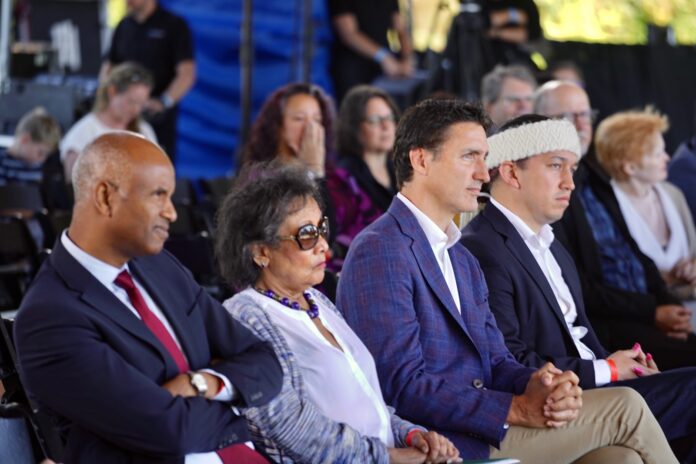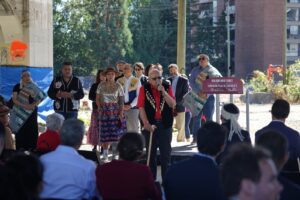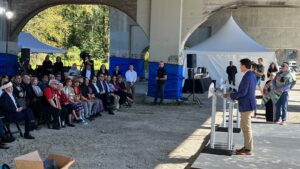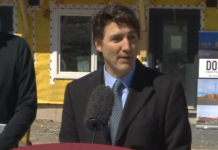
PRIME Minister Justin Trudeau on Tuesday was joined by Squamish Nation Council Chairperson Khelsilem to announce the federal government will provide $1.4 billion to create nearly 3,000 homes on traditional lands in Vancouver’s Kitsilano neighbourhood.
This project is the largest First Nations economic partnership and the largest loan from the Canada Mortgage and Housing Corporation (CMHC) in Canadian history.
These funds will support Sen̓áḵw, an on-reserve residential and commercial development project that will be owned and operated by Squamish Nation. Sen̓áḵw, “the place inside the head of False Creek,” is located on land that was forcibly taken away from Squamish Nation in the early 1900s and returned by the courts in 2003. The ancient Sen̓áḵw village, located on this land, was burned down and the people who lived there were forced to relocate.

When complete, the Sen̓áḵw development project will feature striking Coast Salish architecture and design across a 10-acre site, over half of which will be publicly accessible, with green spaces, parks, and plazas.
Everyone in the community, Indigenous or non-Indigenous, will be able to live at Sen̓áḵw. Sen̓áḵw’s vision will demonstrate how humanity and nature can co-exist, and the development aims to be the largest net-zero residential project in the country.
In addition to thousands of rental units, including affordable units, the project is expected to create hundreds of good jobs and long-term economic opportunities for Squamish Nation. Construction is already underway, with the first residents expected to move in in 2025.

Quick Facts
- The Sen̓áḵw development project was proposed by Sḵwx̱wú7mesh Úxwumixw (Squamish Nation), Westbank Corporation, and OP Trust, under a joint venture, working with the Government of Canada.
- In total, the Sen̓áḵw development project will create 6,000 homes when complete. The Government of Canada has committed to financing the first two of the four phases.
- The funds announced today are being provided by the Canada Mortgage and Housing Corporation (CMHC) through its Rental Construction Financing Initiative (RCFI). Launched in 2017 and part of Canada’s National Housing Strategy (NHS), the RCFI provides low-interest, repayable loans to support construction projects from coast to coast to coast and encourage a stable supply of rental housing for middle-income families in expensive housing markets, with a total target of more than 71,000 new rental housing units.
- Canada’s NHS is an ambitious, 10-year plan to invest over $72 billion to give more Canadians a place to call home. Since its launch in 2017, the government has committed over $26.5 billion to support the creation of over 106,100 units and the repair of over 254,600 units.
- In addition to this announcement, the government proposed over $4 billion in new funding through Budget 2022 to create access to safe and affordable housing for Indigenous Peoples, including through targeted investments and the development of an Urban, Rural, and Northern Indigenous Housing Strategy in partnership with Indigenous Peoples.












